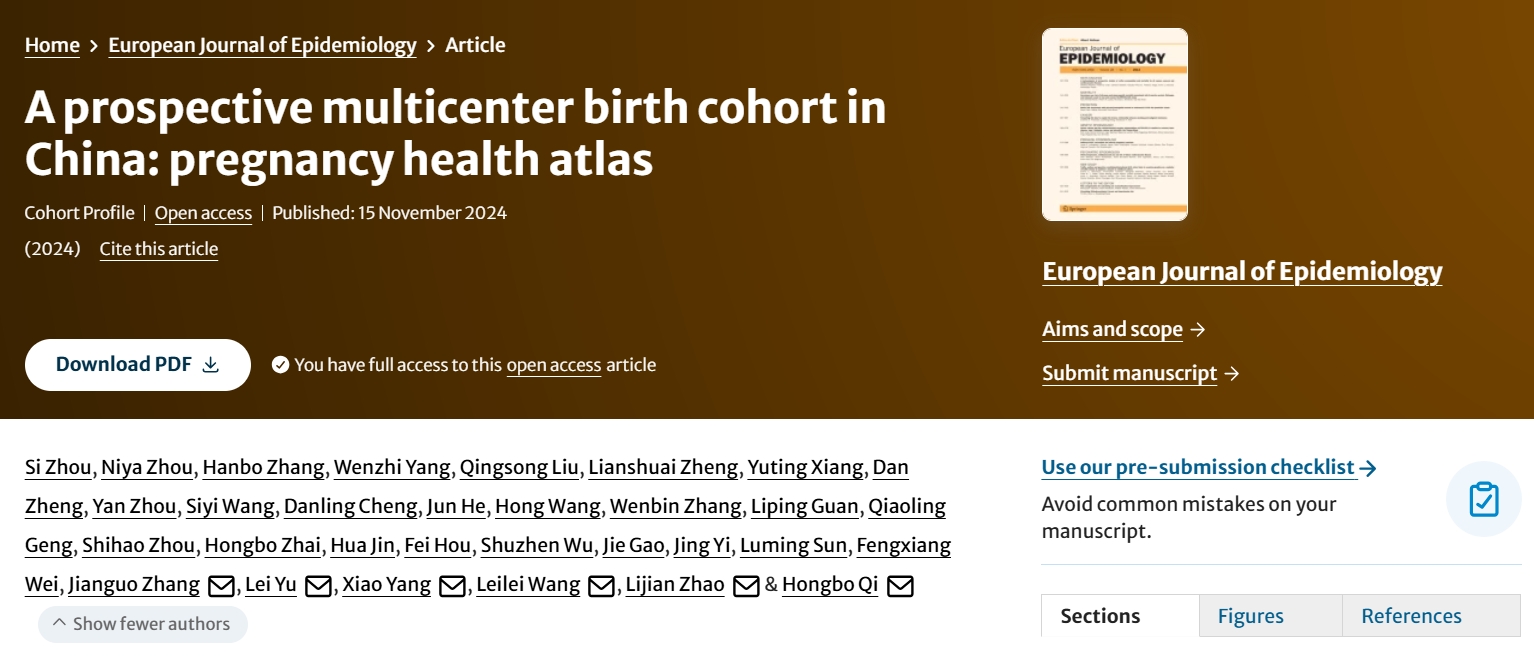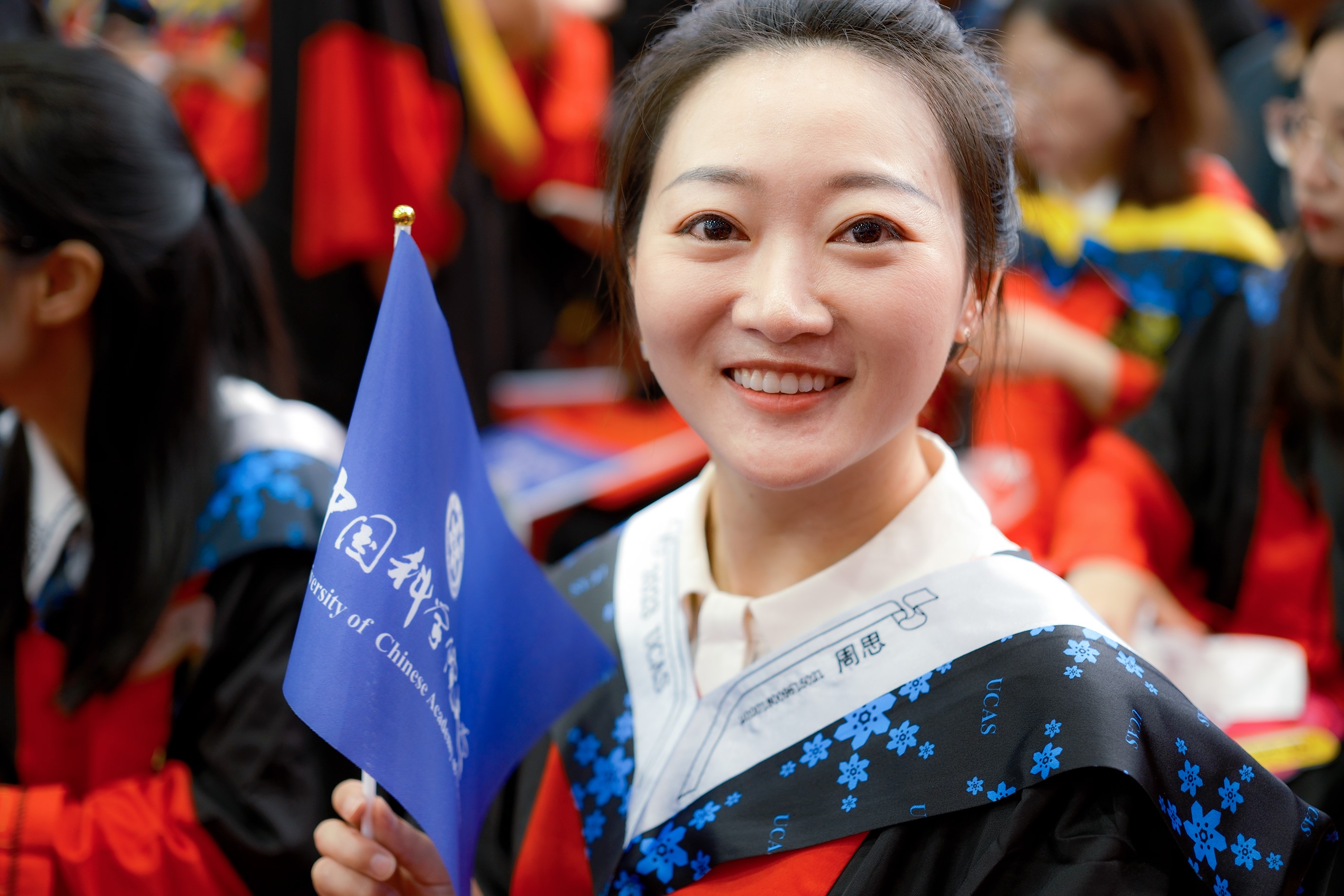Guided by Kindness: Zhou Si's Journey in Maternal-Child Health Research | Chat!DNA
2024-11-19
Since childhood, Zhou Si has been fascinated by the mysteries of the human body. Today, she's a leading researcher at the Institute of Intelligent Medical Research (IIMR) at BGI Genomics, focusing on maternal-child healthcare. She has co-authored multiple research papers in respected journals, including the European Journal of Epidemiology, the American Journal of Obstetrics and Gynecology, BMC Medical Genomics, and Frontiers in Oncology.
“As a child, I wanted to uncover every secret the world held,” she recalls. “I remember once drawing a line on my fingernail just to see how fast it would grow. Looking back, I think that was the moment a seed was planted—a fascination for research and experiment that’s never left me.”
Guided by Kindness
Zhou’s journey eventually led her to a field with a profound impact: maternal and infant healthcare. “On a personal level, I wanted my work to make a real difference in people’s lives. Our research has the potential to identify early predictive markers for complex pregnancy conditions, like preeclampsia and gestational diabetes, that challenge clinicians,” she explains.
One pivotal moment in Zhou’s career was a seminar with Dr. Huang Hefeng, a trailblazer in Chinese reproductive medicine, where a quote at the end of the presentation left a lasting impression: “Between intelligence and kindness, I choose kindness.” These words became her guiding principle.
“That’s when I knew I wanted to focus my research on maternal and infant healthcare, to use what I know to help families in need,” she explains. Driven by kindness as much as intelligence, she finds herself committed to making a tangible difference in the lives of parents and their babies.
Insights from Her Latest Research

Working at BGI Genomics, a leader in reproductive health and prenatal genetic screening, gives her the resources to tackle these challenges head-on. From early pregnancy through delivery, Zhou’s team has already identified patterns in common but complex pregnancy-related conditions like gestational hypertension, preeclampsia, premature birth, and gestational diabetes, recently published in the European Journal of Epidemiology.
“These diseases remain challenging to predict early on, placing both mother and child at higher risk,” she says. The study’s design enables the team to track these conditions throughout pregnancy, offering hope for early diagnosis and intervention breakthroughs.
This ongoing analysis will explore whether conditions experienced during pregnancy could be associated with complex pediatric issues, including autism, depression, and other genetic diseases. “Because the cohort is still young, we don’t yet have data on children beyond two years, but our goal is to observe health trends up to age three,” Zhou notes.
Interesting findings along with challenges
The study has also unearthed fascinating demographic and genetic patterns across provinces. In Guangdong Province, for example, Zhou’s team observed a notably high birth rate for second and third children, followed by Shandong Province, with rates more than double those in other areas. “This may be related to economic development and local cultural traditions,” Zhou suggests.
Guangdong also has the country’s highest rate of thalassemia carriers—up to seven times higher than in other regions—highlighting the importance of carrier screening to prevent birth defects. “These findings are a call to action for public health initiatives in provinces like Guangdong, where the prevalence of thalassemia is significant,” she says.
But the path isn’t easy. Her work involves collaborating across multiple health institutions on the prospective large cohort study, a research design that presents unique hurdles. “The logistics alone are challenging—follow-ups, sampling, sample preparation, mailing... It’s complex, but that’s also what makes our work special,” she shares. The sheer scale and the variety of the population covered add to the research’s difficulty and make it one of the few studies of its kind worldwide.
Imagination and Passion Lead the Path

For her, scientific research requires more than technical skill—it also calls for imagination. “Research is about exploring the unknown,” she says. “We can’t predict results, but we can steer the journey, assume a destination, and keep moving in that direction.” When working on technology that could predict complex pregnancy diseases and help clinicians in real settings, it’s often a hypothesis—an imaginative leap—that starts the process.
Reflecting on her journey, she encourages young people entering science to find joy and purpose in their work. “You need to love what you’re doing because passion will carry you through tough challenges. Patience is also crucial—scientific breakthroughs don’t happen overnight. In research, you’re waiting for the moment when the flowers bloom.”
Her story, from a curious child drawing lines on her fingernails to a dedicated maternal-neonatal health researcher, is a testament to the power of curiosity, kindness, compassion, and imagination in driving meaningful scientific discovery.
About BGI Genomics
BGI Genomics, headquartered in Shenzhen, China, is the world's leading integrated solutions provider of precision medicine. Its services cover more than 100 countries and regions and involve more than 2,300 medical institutions. In July 2017, as a subsidiary of BGI Group, BGI Genomics (300676.SZ) officially began trading on the Shenzhen Stock Exchange.
Read:
Breakthroughs in Disease Prediction from Microbial Signatures: Ren Huahui's Journey
Peruvian engineer drawn to Shenzhen by its natural charm and urban vibrancy | CGTN